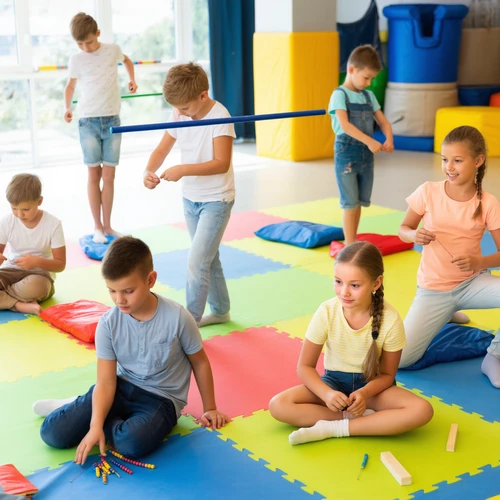Coordination games are a fundamental aspect of child development, offering numerous benefits for physical and cognitive growth. These activities involve the synchronized movement of different body parts to accomplish specific tasks or achieve particular objectives.
The importance of coordination games lies in their ability to enhance various essential skills:
- Fine motor skills: Activities like threading beads, picking up small objects with tweezers, or drawing within lines help develop hand-eye coordination and manual dexterity. These skills are critical for tasks such as writing, dressing oneself, and handling small items.
- Gross motor skills: Games that require jumping, running, balancing, and catching balls improve overall body control and strength. This physical prowess translates well into sports, play, and even everyday activities like climbing stairs or navigating playground equipment.
- Cognitive development: Coordination games often come with rules and strategies that push children to plan, think critically, and solve problems. For example, puzzles require spatial awareness and logical thinking, while obstacle courses prompt creative problem-solving.
- Social-emotional skills: Many coordination games are designed for group play, encouraging teamwork, cooperation, and fair play. Children learn to communicate effectively, share resources, and manage conflicts in a structured environment, which fosters emotional intelligence and resilience.
While parents often engage children in traditional physical activities and sports, it is important to incorporate a variety of coordination games that cater to different aspects of development. The key is maintaining balance - ensuring activities are both challenging and age-appropriate to keep the child engaged while fostering growth.


